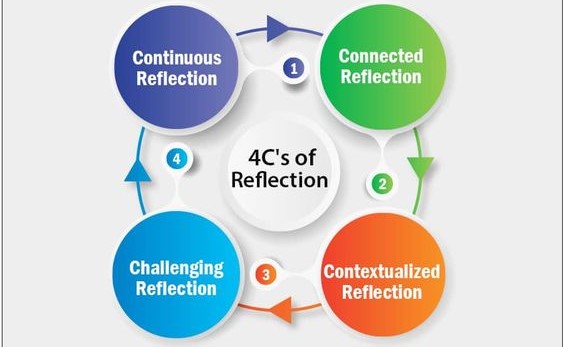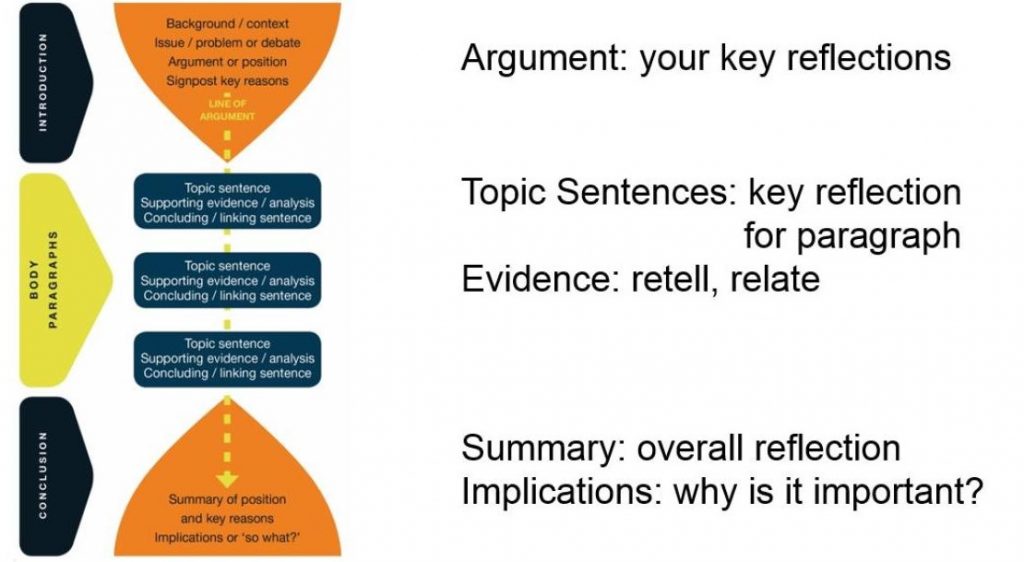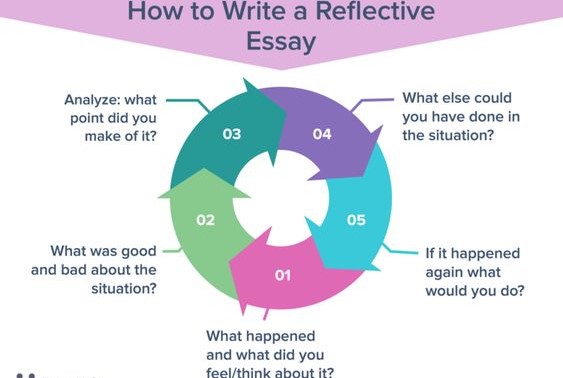Nursing is a profession steeped in experience and self-reflection. It demands constant learning and adaptation, fueled by a deep understanding of the technical and the human aspects of healthcare. A reflective nursing essay offers a vital platform for nurses to articulate their journeys, analyze experiences, and enhance their practice. These essays go beyond simple recounting of events, delving into the emotional, intellectual, and ethical dimensions of nursing care.
While the task of crafting a compelling reflective nursing essay can seem daunting, it needn't be. By following a structured approach, you can transform your experiences into a powerful narrative that showcases your critical thinking, emotional intelligence, and dedication to the profession.
This guide will walk you through a step-by-step process, ensuring you produce a thoughtful and impactful reflective nursing essay that truly captures your unique perspective.
Steps to Crafting a Compelling Reflective Nursing Essay
Step 1: Choosing a Relevant and Engaging Topic
The foundation of a compelling reflective nursing essay lies in choosing a topic that resonates with you. This is where the power of personal experience comes into play. Consider a particular patient encounter, a challenging clinical situation, or a pivotal moment in your professional development. You may also want consider a significant ethical dilemma you faced. The key is to select an event or experience that sparked significant reflection and prompted personal growth.
Here are some questions to guide you in choosing an impactful essay topic:
- What moments in your nursing practice have left a lasting impact on you?
- What challenges have you encountered that have forced you to think differently about your approach to patient care?
- What ethical dilemmas have you grappled with, and what lessons did you learn from those experiences?
- What professional goals have you set for yourself, and how has your practice shaped those goals?
Once you have identified a suitable topic, be sure to narrow it down to a specific and manageable focus. For instance, instead of simply writing about a challenging patient encounter, you could focus on a specific aspect of the encounter. Examples could be managing a patient's pain, communicating with their family, or navigating an ethical dilemma related to their care.
Step 2: Deepening Your Reflection through Focused Inquiry
Now that you've chosen your topic, it's time to delve into the heart of the reflective nursing essay. This stage involves critically examining your chosen experience from multiple perspectives. The aim is to uncover the deeper meaning behind the events and the lessons learned.
Here are some key questions to guide your reflective process:
- What were your initial thoughts and feelings about the situation?
- What were your actions, and why did you choose those actions?
- What were the outcomes of your actions, both positive and negative?
- How did this experience affect your understanding of patient care, your role as a nurse, or the healthcare system as a whole?
- What did you learn from this experience? What insights or realizations did it bring about?
- How has this experience shaped your future nursing practice?

You can also employ established reflection models like Gibbs' Reflective Cycle or Kolb's Experiential Learning Cycle to structure your thinking and ensure a comprehensive analysis of the experience. These models provide a framework for systematically addressing different aspects of the experience, leading to a more profound understanding of its significance.
Step 3: Crafting a Compelling Narrative Structure
With your reflections well-developed, it's time to weave them into a compelling narrative. A strong reflective nursing essay is not merely a list of observations; it's a story that engages the reader and invites them to share your journey of learning and growth.
Consider these elements of narrative structure:
- Introduction: Start by introducing your chosen topic and briefly outlining its significance. Engage the reader by setting the scene and establishing the context of your reflection.
- Body Paragraphs: Develop each paragraph around a specific theme or aspect of your reflection. Use clear transitions to connect different ideas and ensure logical flow.
- Evidence and Examples: Support your reflections with concrete evidence from your experience. This could include specific patient interactions, dialogues, observations, or internal dialogues you had during the situation.
- Critical Analysis: Don't simply recount events. Analyze your actions, decisions, and the outcomes of your choices. Explore your thought processes, ethical considerations, and how your beliefs and values shaped your approach.
- Reflection and Insights: Articulate the lessons you learned from the experience, the new understanding you gained, and how it has shaped your practice. Demonstrate your growth as a nurse and your commitment to ongoing learning.
- Conclusion: End your essay with a clear and impactful conclusion. Summarize your key insights and highlight the relevance of your reflection to your professional journey.

Step 4: Enhancing Your Essay with Clear and Concise Language
Clarity and conciseness are crucial elements of any effective essay, especially a reflective nursing essay. Use language that is precise, professional, and easy to understand. Avoid jargon, slang, or overly technical terms that might alienate the reader.
Here are some tips for writing clearly and concisely:
- Focus on active voice: Using active voice makes your writing more direct and engaging. For example, instead of saying "The patient was examined by the nurse," write "The nurse examined the patient."
- Use strong verbs: Choose verbs that accurately convey your actions and experiences. For example, instead of saying "I felt sad," consider using a more specific verb like "I grieved," "I lamented," or "I mourned."
- Avoid redundancy: Be mindful of using unnecessary words or phrases. Eliminate any phrases that could be expressed more concisely.
- Proofread carefully: Proofread your essay thoroughly for any grammatical errors, typos, or stylistic inconsistencies.
Step 5: Tailoring Your Essay to the Specific Requirements
Before submitting your reflective nursing essay, ensure that it adheres to the specific guidelines provided by your instructor or institution. Pay close attention to factors like:
- Word count: Stick to the specified word count, but do not sacrifice the depth of your reflection.
- Formatting: Follow the required formatting guidelines for font, spacing, margins, and citation style.
- Target audience: Consider who will be reading your essay and tailor your language and style accordingly.
Examples of Reflective Nursing Essay Topics
- Reflecting on a patient's end-of-life care: Discuss the emotional and ethical complexities of providing end-of-life care, exploring your role in supporting both the patient and their family.
- Reflecting on a difficult patient interaction: Analyze a challenging interaction with a patient, exploring your communication strategies, empathy, and conflict resolution skills.
- Reflecting on a clinical skill you learned: Discuss the process of learning a new clinical skill, highlighting your challenges, successes, and the impact it has had on your practice.
- Reflecting on a professional development experience: Reflect on a workshop, conference, or mentorship program you attended, analyzing the impact it has had on your nursing knowledge and skills.
- Reflecting on a specific ethical dilemma: Discuss an ethical dilemma you encountered, exploring the different perspectives involved, your decision-making process, and the lessons learned.
Beyond the Essay: The Power of Reflective Practice in Nursing
Writing a reflective nursing essay is more than just a writing assignment; it's an opportunity to engage in a crucial process known as reflective practice. Reflective practice is an ongoing process of self-examination and critical thinking that helps nurses enhance their practice, develop professional growth, and improve patient outcomes.
Here are some key benefits of reflective practice:
- Improved critical thinking: By reflecting on our experiences, we develop the ability to analyze situations, identify patterns, and draw conclusions.
- Enhanced self-awareness: Reflection allows us to become more aware of our strengths, weaknesses, biases, and how these factors influence our actions.
- Enhanced empathy and communication: By reflecting on our interactions with patients, we develop a deeper understanding of their perspectives and needs.
- Increased adaptability and resilience: Reflecting on challenging situations helps us learn from our mistakes and develop the skills to handle similar situations in the future.
Creating a Culture of Reflection
Developing a habit of reflection is essential for all nurses, regardless of their experience level. Encourage a culture of reflection within your workplace by:
- Providing dedicated time and space for reflection: Set aside time for staff to reflect on their experiences, individually or in group settings.
- Facilitating structured reflection activities: Use tools like reflective journals, peer feedback sessions, or case studies to guide reflective practice.
- Encouraging open dialogue and sharing of experiences: Create a safe and supportive environment for nurses to discuss their experiences and learn from each other.

Final Thoughts
Crafting a compelling reflective nursing essay is a valuable exercise in self-exploration and professional development. By following the steps outlined in this guide, you can transform your nursing experiences into powerful narratives that showcase your critical thinking, empathy, and commitment to delivering high-quality patient care. Remember, reflective practice is an ongoing journey, not a one-time event. By embracing this process, you will not only enhance your personal and professional growth but also contribute to the development of a more compassionate and effective nursing profession.
Get Customized Reflective Nursing Essay Writing Help
At Exemplary Dissertations, we understand the task of writing a stellar nursing reflective essay can seem daunting to most students. That is why we have highly experienced writers to deliver customized nursing essay writing help at your convenience. We offer professional academic writing assistance for nursing essays, research papers, case studies and dissertations.